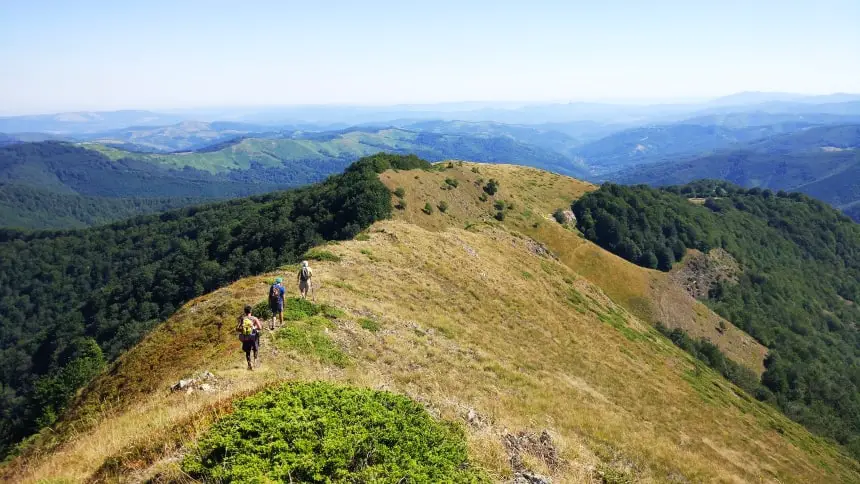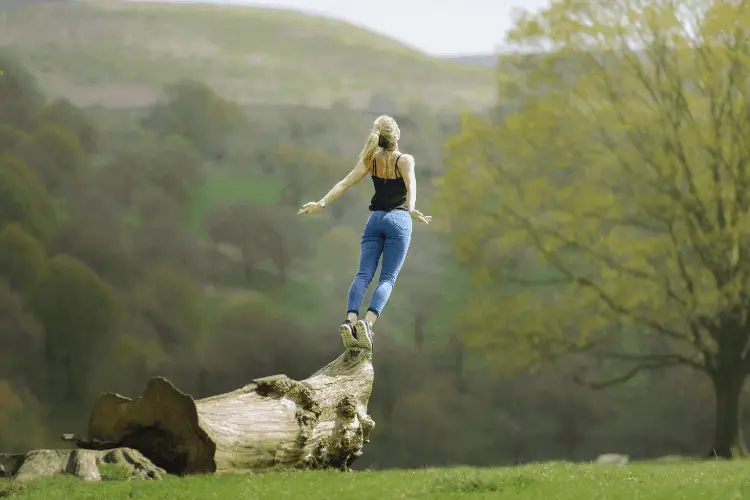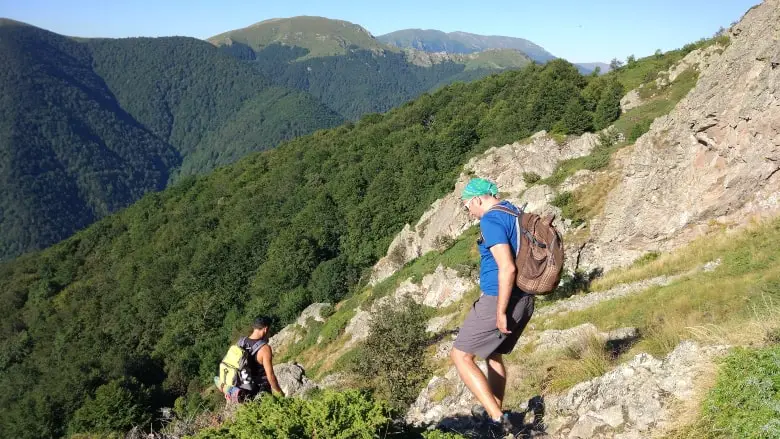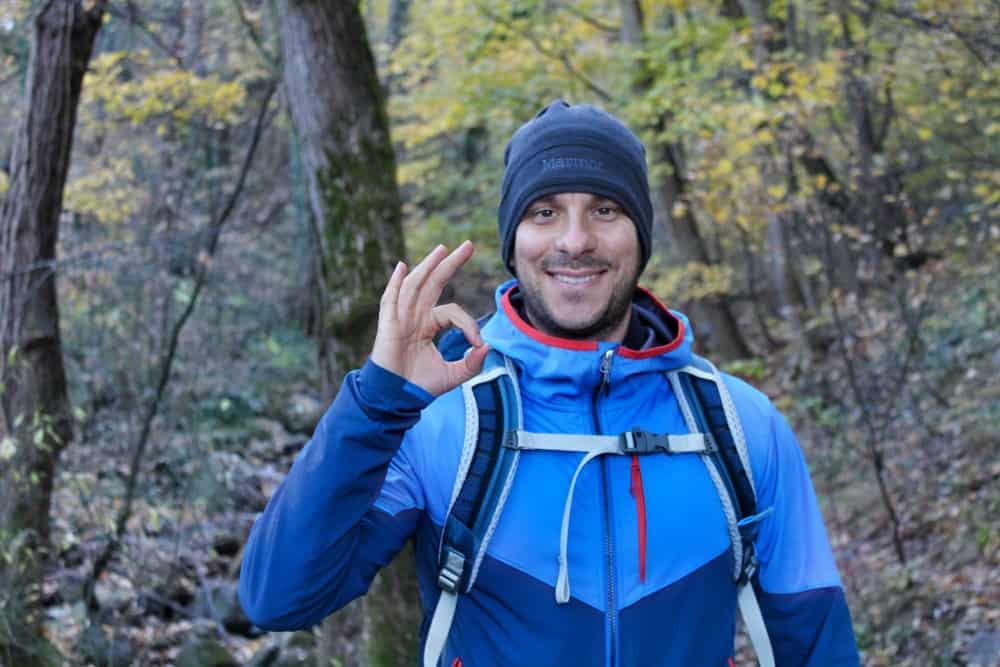Is Hiking Every Day Bad? Here’s What Science Says [2021]
For most people, exercising every day sounds like an exhausting and impossible goal. It’s easier to make excuses or question the benefits, “Surely it burdens the body?”
Truth is – daily physical activity brings a host of physical and mental health benefits as long as we approach it in moderation.
You might wonder then – is hiking every day bad? No, hiking every day isn’t bad. It’s the opposite.
Often we think of hiking as clambering steep mountainsides, rocky terrain underfoot and forest looming from all sides. We envision reaching peak tops like we conquered a quest, out of breath and muscles burning.
In reality, hiking can be the low-intensity exercise you require to stay healthy. Imagine a brisk (but not hurried!) walk over paved trails, or mild treks along the coast. Imagine waking up your body and mind with a quick hike early mornings.
Let me show you how to make hiking every day work for you.
Benefits Of Hiking Every Day
First, let’s take a look at hiking and walking benefits.
From improving balance to reducing risk of diseases, it’s a win-win activity that also declutters the mind.
Physical Health Benefits
Johns Hopkins University released a study that shows how increased active time outdoors results in increased levels of Vitamin D. No matter if you're hiking or walking.
You don’t just bask in the sun when outside. You’re actually absorbing Vitamin D, an essential element that reduces heart disease.
While inconclusive, some other studies have found that physical activity also helps prevent chances of cancer.
The biggest benefit of hiking is that it’s a gift that keeps giving.
According to the Center of Disease Control, hiking allows sustainable growth. With just 150 minutes of brisk walking every week, our heart and lungs’ ability to circulate blood, oxygen and nutrients increase significantly.
This means we can exercise for longer periods of time as our body adapts to cardiovascular stress! We can check off those minutes however we want, such as breaking them down into 30-minute blocks, 5 days a week.
You can also lose weight without making it a chore. Instead of pumping weights in the gym, hiking targets all muscle groups while offering you awesome views and dynamic paths. Did you know that:
- The heavier you are, the more calories you burn!
- As you trim down on fat, you lower the risk of high blood pressure and Type 2 Diabetes.
- While hiking can be low-intensity, walking for long periods of time means your muscles are consistently engaged. This helps build muscle endurance and a stronger core.
There’s a clear link between hiking and fat burn. Best of all, you can build muscle strength through daily walks, which then contribute to higher metabolic rates and further fat burn.
Strong muscles and a lighter-weight body will ensure healthy knee joints and bones – you’ll be moving for a long time yet.
Just make sure not to hike extensively in Converse shoes. Those are awful for long treks on technical terrains.
Mental Health Benefits
There are plenty of mental and emotional health benefits as well.

Backpacking makes you smile!
With constant digital noise and exposure to stressful situations, mental health problems are rising by the year. Hiking boosts mental health in several ways.
Reduces stress, anxiety, and depression
When we consider how stress, anxiety and urban noise all contribute to high risk of depression, it seems even more important to unplug.
The outdoors is a great salve for our brains, as Stanford University researchers have proven.
When comparing groups of people in nature versus those in an urban setting, the former emerged with quieter prefrontal cortex activity. Our decision-making and logic-processing sector of the brain relaxes.
I certainly find being outdoors and away from my daily stress-factors uplifting!
Clears the mind
The quiet time outdoors gives you tangible things to connect with. You get to connect with your body through movement, take in fresh scents and natural sounds.
Our bodies weren’t built for long days at the desk; movement helps clear the mind while turning your focus away from modern distractions.
You learn to be present.
Encourages creativity
Your brain also gets a boost from just spending time outdoors.
Whether from reduced stress or more oxygen to the brain, people who spend time in nature are proven to enjoy increased clarity and sharpness in thinking. Research also shows that your creativity jumps up to 50%.
Boosts happiness and inner peace
Hiking isn’t just a break from the normal hectic day, but also an act of self-care. It’s proof that you care about being happy and healthy. By turning that positive mindset into action – you’re actively practicing happiness.
Adding Hiking to Your Daily Routine
I get this question frequently: How does hiking affect your daily routine? The most difficult part about adding hiking to my schedule was consistency.
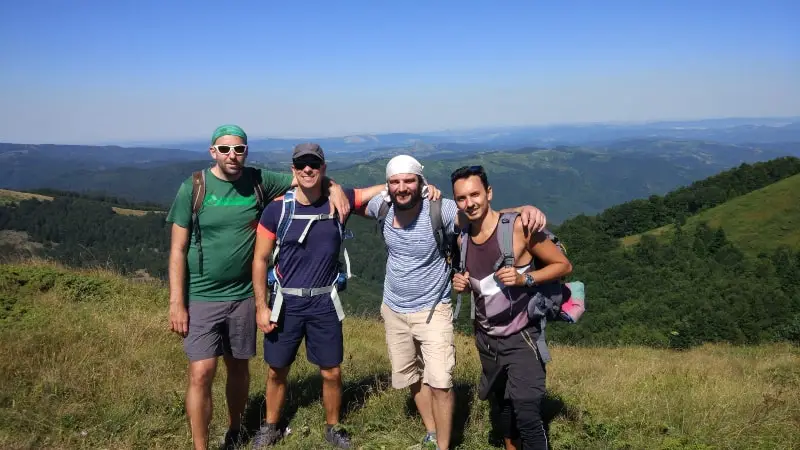
Adding hiking to my often busy schedule was difficult but definitely not impossible.
Because most of us already have a packed schedule, we need to find a way to make it a regular activity.
I recommend:
- Walking the same time each day, either first thing in the morning, during lunch break or after dinner.
- Choose to walk when commuting instead of driving.
- Keep an activity log or mark it on your calendar.
- Find a hiking or walking buddy to keep each other accountable.
- Make it fun! Open your senses to nature or set goals like “spot 10 interesting details on your trail”. Take your dog out for a walk or invite friends along.
Given time and physical constraints, build hiking into your routine slowly. Start with 10-minute rounds so your body can acclimatize, then up it to longer sessions.
How to Hike Safely Every Day
There are some risks of exercising every day – knee injuries, back injuries, muscles overload and so forth.
You have to be careful not to burn out. Those with existing medical conditions should consult a physician when building their exercise plan. The same goes for overweight hikers and senior hikers.
Answer these questions before you start hiking every day:
What you need to do in order to hike every day?
Make your necessary preparations! My check-list for beginners looks something like this:
- Warm up and cool down is a must or you’ll risk muscle injury.
- Eat sufficient calories and have a balanced diet; to maximize output, you need input. Food is also part of the recovery process.
- Check in with your doctor regularly, especially if you’re over the age of 40.
- Choose appropriate walks that match your age and fitness level.
- Wear comfortable clothing and supportive footwear. Note that not all boots are hood for snow, so choose wisely. Don't forget walking poles with the right baskets.
- Make it fun!
How long can an average person hike every day?
Generally, an average person can hike up to 15 miles a day, covering 2-3 miles per hour. Of course, this assumes that the trail is paved and relatively easy.
Technical routes, heavy loads and bad weather would affect the distance. In this case, it’s better to plan for duration than distance.
The recommended amount is at least 10,000 steps every day. Track your steps using mobile apps to figure out what your walking speed is and how much distance you can cover in the time available.
What do we mean by ‘brisk’ walk?
Define ‘brisk’ by your air flow. You can talk while moving but not sing. You’re puffing slightly, but your lungs aren’t heaving.
What’s a good intensity?
If you’re nifty with the gadgets or know how to measure your heart rate manually, your target heart rate should fall between 40 – 60 percent of your maximum.
If you’re more of a feel-y person, that means feeling your muscles working, breaking out into (light) sweat and breathing deeply without panting.
As your body adjusts to hiking every day, you can slowly increase intensity by adding some kind of weight or increasing your walking speed.
Walking uphill or at an incline will challenge your muscles, as do lengthening the distance of your walks.
What trails are suitable for hiking every day?
There are three main criteria to consider when picking out daily trails.
- Easy access. For those who work a strict 9 – 5, your trails have to be located near you or places you frequent. You can also treat your walk to and from the trailhead as warm up and cool down. Alternatively, trails around transport hubs are great too, since you can just hop onto public transport and go.
- Easy on the body. Opt for flat terrain like parks or gardens around your neighborhood, or walking tracks designed for beginners. Save the challenging trails for the weekend.
- More length than incline. Choose trails that allow you to up intensity via added distance versus trails incline steeply. You want to maintain your breathing pattern. Of course, you can mix up your routine with moderate to challenge trails once or twice a week – just don’t do it every day.
Before we wrap this article up, check out some valuable tips on saving money on hiking gear here. Those are proven to work really well.
In Conclusion
Is hiking every day bad? Not at all.
Research (and personal experience) has proven that hiking offers a host of physical and mental health benefits. Not only does it help you lose weight, strengthen muscles, reduce disease and optimize endurance, it also reduces stress.
As experts have advised, exercising every day is encouraged in moderation. Recognize your limits and work with your body – a 30-minute walk is more sustainable than 3-hour jogs per day. Low-intensity workouts are exactly what you need to feel energized.
When you start adding hiking to your daily routine, be sure to start easy before upping the intensity! Treat is as a sport. Even that hiking isn't officially a sport.
Don’t feel discouraged if it takes you a while to adjust. Share your progress with friends and family. Maybe even encourage them to hike with you.
Asen Stoyanchev
Founder of this website, Asen is a passionate hiker and writer who is also a gear nerd. He’s been featured on many established hiking websites where he gives hiking advice & tips. When he is not trekking with his family or friends, he is writing articles and product reviews. Asen spends most of his time in Bulgaria but he constantly travels the world in seek of more unforgettable experiences. Read more about Asen here.

![Is Hiking Every Day Bad? Here’s What Science Says [2021] man hiking in the woods](https://gearuphiking.com/wp-content/uploads/2021/03/facebook-image-backpacking-woods.png)

